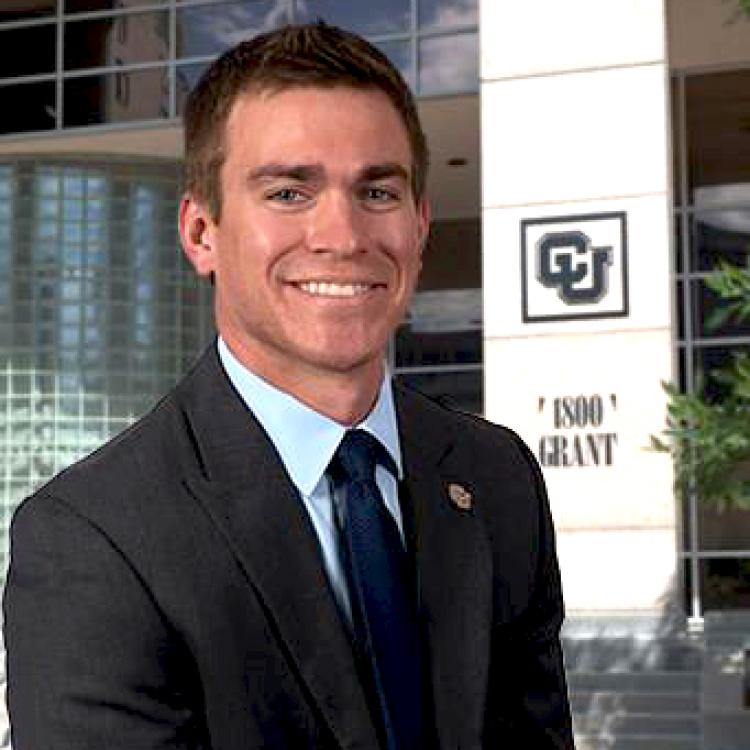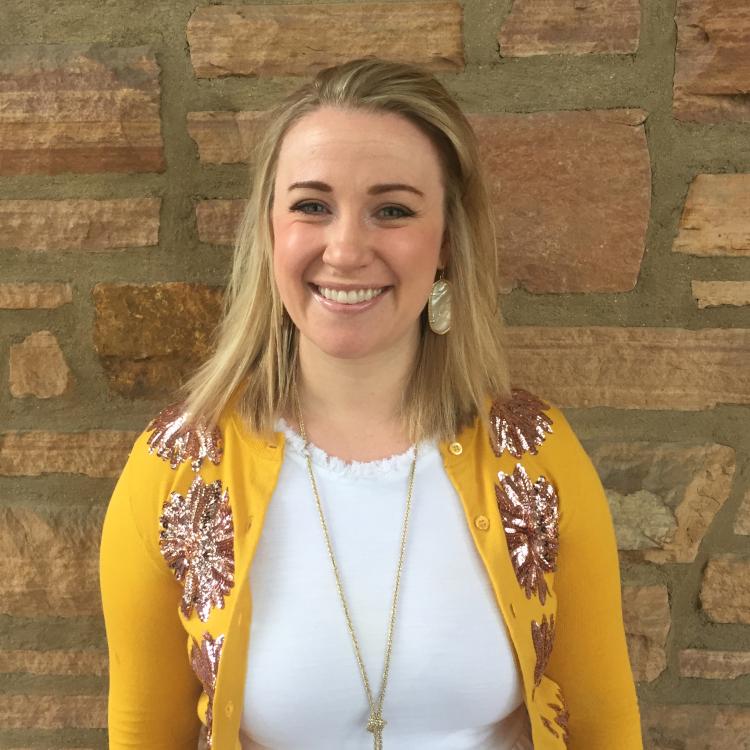Q&A: Federal relations team on President Trump’s anticipated 2018 budget
CU's Office of Government Relations (OGR) serves as the liaison between the University of Colorado and elected officials, national organizations and government entities on education and research issues. Heather Bené and Jack Waldorf co-lead CU Boulder’s federal relations efforts.

Assistant Vice President of Federal Relations and Outreach Jack Waldorf
jack.waldorf@cu.edu 303-831-6385
Bené is based in Washington, D.C., and has more than 10 years of experience in government relations for public research universities, including three years at CU. Waldorf, a CU Boulder alum, is based in Colorado and previously worked on Capitol Hill on both the House and Senate side before coming to CU in 2013.
What does the recent news about the FY17 budget mean to our campus and researchers?
Waldorf: Tracking the federal budget process is a top priority for our office right now. Overall, we're pleased with the final numbers in the omnibus package for fiscal year 2017, which provide stable funding or slight increases for many of the university's key federal partners, including NASA, National Oceanic and Atmospheric Administration (NOAA), the National Science Foundation (NSF), the National Institutes of Health (NIH) and the Department of Energy (DOE).
Probably the biggest wins for the higher education community in FY17 are a $2-billion increase for NIH and reinstating access to federal Pell Grants for our students over the summer. With FY17 funding now finalized, the work on the FY18 budget process kicks into high gear next week.
What is likely to happen next week?
Bené: Next week, we expect President Trump to deliver his final fiscal year 2018 budget request to Congress. We saw a preview of what to expect in March when the president released his preliminary "skinny" budget. We don't expect the full budget will deviate from what we saw earlier this spring, but it will offer additional detail on the president's priorities.
Most federal agencies will also host budget overview events in Washington, which we will attend so we can better understand the proposal and how to hone our advocacy going forward.
Like many on campus, we're concerned by the deep cuts the president has already proposed for research and education agencies, so we'll be working closely with our Colorado lawmakers and allies in Congress to protect the programs critical to our research and education missions. We'll also be advocating for a budget deal that avoids the return of sequestration—mandatory spending cuts scheduled to take effect in 2018.
The good news is that Congress controls the purse strings, and as we recently saw for fiscal year 2017, is not inclined to simply acquiesce to the executive branch's priorities.
How does the Office of Government Relations convey campus budget priorities to Congress?
Waldorf: Every year, in conjunction with the Research & Innovation Office (RIO), OGR compiles federal research priorities for the upcoming fiscal year and shares those priorities with the entire Colorado congressional delegation. Just last month our team met with all of Colorado's congressional offices in Washington, D.C., for this purpose.
Over the course of the entire budget process, the government relations team remains in close contact with our congressional delegation as well as key appropriations staff to ensure CU’s research accounts remain strong.
What’s the best way to keep track of what’s going on? And what can our community do?
Bené: In addition to our external advocacy, Jack and I are responsible for ensuring the university is informed about ongoing federal budgetary and policy developments. One of the ways we do this is through our Federal Relations Update, a newsletter distributed each week that Congress is in session. If you are not already receiving the newsletter and would like to, please email heather.bene@cu.edu.
RIO also has a terrific new Research & Federal Funding News webpage that tracks relevant research developments. In addition, our friends at the national associations offer a suite of resources to support university advocacy. For example, this year the American Association for the Advancement of Science (AAAS) started offering live chats on an array of science-policy topics.
Most importantly, we encourage folks to reach out to us directly when they have questions or want to engage in the advocacy process.
What should CU faculty and staff do if they have specific questions on the budget process or anything related to the federal government?
Waldorf: Our team is here to serve the campus, and we want be as accessible as possible. For us to be effective in D.C., we need to hear from campus stakeholders on the issues that matter most—whether that be research funding, financial aid concerns, a visa issue or similar matters.
Our office serves as the conduit between the university and our federal representation, and we want to ensure CU’s voice is heard in our nation’s capital. Please never hesitate to contact Heather and me with any questions. If we don’t already have the answer for you, we'll find out for you right away!



